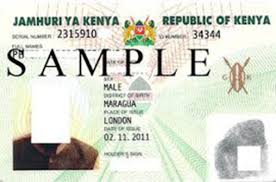Due Diligence Procedures in Land Transactions in Kenya: Five Steps.

INTRODUCTION
The late James Madison once stated that “if men were angels, no government would be necessary…” (Federalist Papers 51-60). I would extend this statement to also mean that if men were angels, no law would be necessary, and due diligence before transactions would also not be necessary.
As we very well know, men are not angels. This is especially so in land matters. In Kenya, land is a very emotive issue. Kenya unfortunately has very many fraudsters who purport to sell that which they do not have title or power to sell. This necessitates a wise buyer of land to conduct due diligence over the land to ascertain whether or not the person purporting to sell the parcel of land, has title to it.
The purpose of this article is to introduce the reader to the various steps in conducting due diligence before a buyer pays the purchase price of land to a purported seller.
STEP ONE: OFFICIAL SEARCH AT THE LAND REGISTRY

The first step in due diligence is to conduct an official search at the Land Registry closest to where the land is sold. We often advise clients to do this even before drafting an agreement for sale. The seller of the land would give you or your advocate a recently certified copy of the title of the land. With the title copy, one proceeds to either electronically apply for an official search ( if the land is in Nairobi or other digitally-enabled registries), or by making a physical application for official search as is the case in up-country registries.
Within a day or two, the search results will come out. The results will contain the following information:
- The name of the registered proprietor/owner of the land.
- Any encumbrances over the land such as charges, ( where the land had previously been charged or mortgaged to a financial institution), registered caveats, cautions, or restrictions on the land, as well as other third party rights such as existing easements and licenses.
- If the property is a government lease, the remaining duration of the lease.
With this information, the prospective buyer of the land would be able to ascertain whether or not the prospective seller of the land is the actual owner of the land. The other information on the land would guide the buyer in making an informed decision whether or not to proceed with the transaction.
At times the circumstances of the transaction may necessitate carrying out a historical search. This is a type of search specially conducted by the registry where the history of the land and all transactions related to it from the very first historically recorded transaction, are released. Historical searches are useful, especially where there is a dispute as to ownership of the land.
STEP TWO: COUNTY REGISTRY SEARCH

The buyer after completing the official search mentioned in the preceding section, will then proceed to the county government registry and conduct a search over the records held at the county government. The county government registry, will upon paying the necessary fees, give the buyer the following information over the land:
- Whether or not land rates have been paid and are up to date
- The registered “user” of the land.
Rates
It is important for the buyer to know whether or not rates have been cleared as a Rates Clearance Certificate will be required before the title is transferred to the buyer. It is the duty of the seller of the land to clear all rates.
Registered User
Land is always classified and subdivided into different zones with different “users”. The word “user” here denotes the allowable activities in the occupation of the land. For example, land that is designated as “agricultural”, cannot be used for any other purpose except as such. One can also not construct a factory on land that is designated “residential”.
Conducting a county registry search will aid the buyer to ascertain the designation of the land and to examine whether the buyer’s intended exploitation of the land, conforms to its designated use.
Should it not conform to its designated use, the buyer will have the option to either withdraw from the transaction or prompt the seller to apply for a “change of user.”
STEP THREE: REGISTRY OF PERSONS VERIFICATION

This has become a very important step in recent times. Our office has recently handled a case where a fraudster impersonated the actual owner of some land in order to defraud unsuspecting members of the public. The fraudster forged an identity card showing the name of the actual owner of the land, but the face of the fraudster. He then proceeded to enter into an agreement and receive deposits over the land before cutting all communication.
It is thus important for the buyer of the land to verify the authenticity of the seller’s identity documents at the registry of persons before proceeding with the transaction.
STEP FOUR: UTILITY VERIFICATION

In this step, the buyer will visit the various utility companies to establish whether there are pending unpaid utility bills. This is important for the buyer to avoid taking over bills that he/she did not incur.
STEP FIVE: BOUNDARY VERIFICATION

In this last step, the buyer will purchase a Deed Plan from the relevant county surveyors office. A Deed Plan is a map that shows the dimensions of the land, as well as the various measurements, sizes, and bearings on the land. The buyer will then hire the services of a surveyor who will physically visit the location of the land to ascertain that the demarcation beacons are in the right places and have not been tampered with.
CONCLUSION

Once all the above steps are undertaken successfully and the results show that the transaction is clean, the buyer will have the necessary confidence to proceed with the transaction. It is always better to take caution rather than rush into a transaction and later suffer losses. While the above steps may seem to be petty to many people, in matters of land, it pays to be petty.


Meticulous. Always a pleasure reading your Articles for all my classes.
This is well done and quite informative BLOC.Kindly do one for sectional properties.
Dear Lynda,
Many thanks,
We will do so.
Quite an informative piece! Explained in plain English.
Dear Sir\Madam,
I am Saiful from Bangladesh.
occupation: I am a Student and freelancer
Can you help me?
Hello
I have sent you an email.
Please check. Kind regards.
Can you help me
Please mail me.
1999mdsaiful@gmail.com
Hello, I have sent you an email.
Please check.
Quite educative. gland to have bumped on this site. Matters land buying is very tricky today. thanks
Quite an informative piece! Explained in plain English.
Pingback : SECTIONAL PROPERTY: Long- Term Leases. - Advocates.ke Insights
Clear article.
Would you mind having links that get readers to take action in each step as value enhancement to the great article?
This is very informative. Next time blog on buying a property as a foreigner.
Hello Betty, I trust that you’re well.
Thank you for taking your time to read through our articles, Keep it here to see our next article on Buying property as a foreigner.